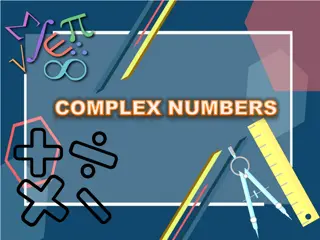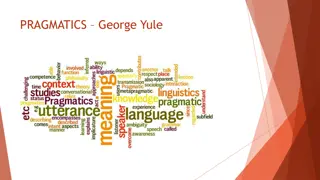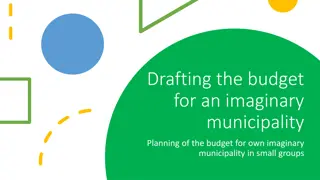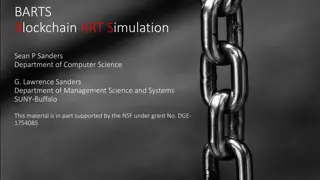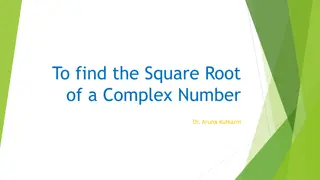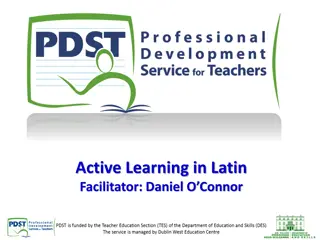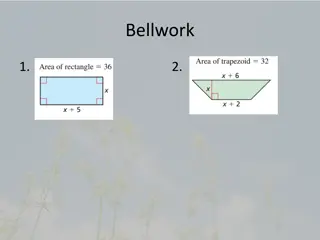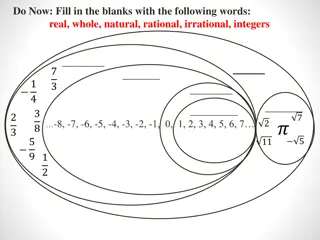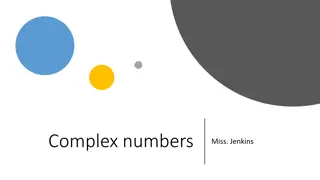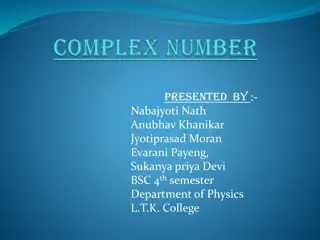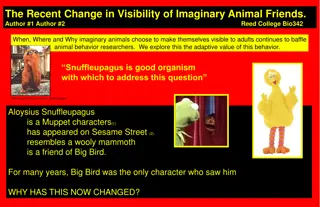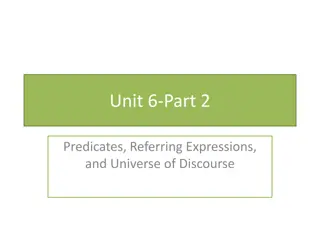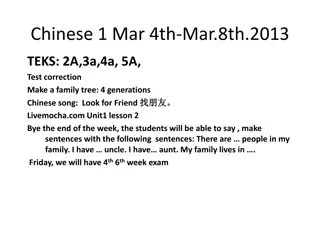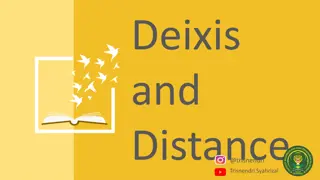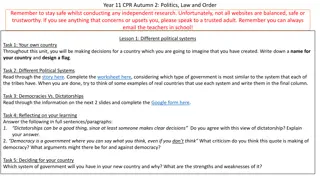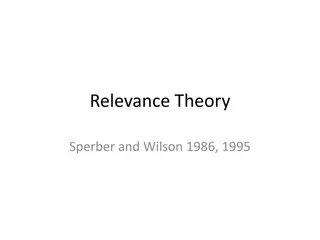Planning an Imaginary Setting Description for a Creative Story
Create an imaginary setting with descriptive details such as the location, inhabitants, and focus to immerse readers in your story. Plan through your character's perspective, including their actions, emotions, and interactions within the setting. Engage all senses to bring the scene to life for an e
1 views • 11 slides
Exploring Pragmatics in Linguistics Studies
Pragmatics delves into the study of implied meanings and how we interpret language in various contexts. It focuses on understanding communication beyond explicit words and explores the invisible meanings conveyed through situational and linguistic contexts. Deixis, physical context, and linguistic c
0 views • 41 slides
Understanding Power Supply Design Considerations
Design considerations for power supplies involve DC-DC conversion, voltage regulation, efficiency trade-offs, and choosing between linear and switching regulators. Key aspects include voltage regulation reasons, imaginary perfect regulators, linear regulators (including LDOs), switching regulators,
0 views • 27 slides
Comprehensive Guide to Complex Numbers - Learning Objectives, Key Concepts, and Previous Knowledge Testing
This comprehensive guide provides detailed information on complex numbers, including learning objectives such as identifying complex numbers, applying algebra, understanding properties like conjugates and moduli, finding square roots, and representing in polar form. Key concepts covered include inte
3 views • 27 slides
Overview of Pragmatics and Deixis According to George Yule
Pragmatics and Deixis are crucial aspects of language understanding, as explored by George Yule. Pragmatics focuses on the use of language in context, while Deixis involves pointing via language to convey meaning based on the immediate context. Deictic expressions play a significant role in face-to-
0 views • 19 slides
DHIS2 Trainingland - Data Analysis and Visualization Exercises
Explore DHIS2 Trainingland, an imaginary country for training, to learn about indicators, data collection forms, and data analysis through a series of exercises including creating pivot tables, making charts, and saving favorites.
0 views • 11 slides
Exploring Malgudi: A Fictional Town by R.K. Narayan
Malgudi, a fictional town created by R.K. Narayan, serves as the backdrop for most of his works. Narayan skillfully portrays Malgudi as a microcosm of India, blending elements of various locales. Geography and origins of Malgudi, along with its localities, landmarks, and streets, offer insights into
1 views • 10 slides
Managing Physical Health in Severe Mental Illness with a Focus on Diabetes
This educational material presents a comprehensive slide set designed to aid in the management of physical health in individuals with severe mental illness, focusing on diabetes. It includes insights on the challenges faced by healthcare professionals, learning objectives on diabetes management, and
0 views • 14 slides
Budget Planning for an Imaginary Municipality: A Fun and Interactive Simulation
Delve into the world of local governance by creating your own imaginary municipality with a medium-sized population. Explore the responsibilities of municipalities, such as organizing basic public services, and learn about funding sources. Engage in decision-making processes with your group to draft
0 views • 15 slides
Understanding Geometric Line Sweep Algorithms
Geometric Line Sweep is a powerful technique where an imaginary line sweeps over points, performing geometric operations at each point. This method can find minimum distances between points, overlapping rectangles, and more. By sorting points and efficiently processing them, it can enhance performan
0 views • 10 slides
Understanding Blockchain Technology: Challenges and Applications
Grasping the concept of blockchain can be a daunting task due to its multi-faceted nature, requiring knowledge spanning web programming, network, business, economics, and more. However, educational resources and practical exercises, such as those provided in BARTS Blockchain Art Simulation, can aid
0 views • 60 slides
Understanding Social and Emotional Development in Young Children
Explore the general emotional patterns and specific emotions in young children aged 4 to 6 years. Understand the positive and negative characteristics such as self-centeredness, independence, anxiety, and fear, and learn how to deal with common fears like imaginary dangers and separation anxiety. Re
1 views • 19 slides
Finding Square Roots of Complex Numbers
Dr. Aruna Kulkarni explains the process of finding the square root of a complex number using equations for real and imaginary parts. By solving the equations step by step, the square roots of the complex number are determined. The final result is presented, showcasing the values of a and b in the co
0 views • 5 slides
Understanding Psychotic Symptoms in Children and Youth
Psychotic symptoms in children and youth can manifest in various forms including hallucinations, grief-related apparitions, cultural influences, hypnagogic experiences, and imaginary friends. It's important to differentiate between non-pathological experiences and clinical psychosis. Psychotic sympt
0 views • 15 slides
Understanding Conditional Sentences and Time Clauses
Conditional sentences are divided into real and unreal scenarios. Real conditionals, like zero and first conditionals, express present or future possibilities, while unreal conditionals, such as second and third conditionals, discuss imaginary or impossible situations. The use of "if" indicates less
0 views • 32 slides
Understanding the Significance of Latitude and Longitude Grid on Earth's Surface
Latitude and longitude form a grid of imaginary lines that are essential for pinpointing locations on Earth. The equator divides the planet into North and South hemispheres, while the prime meridian separates it into East and West hemispheres. With coordinates expressed using degrees, understanding
0 views • 9 slides
Understanding Reference and Inference in Linguistics
Discussing deixis, the act of reference in language is explained as a way for speakers and writers to enable listeners and readers to identify entities. Reference involves using proper nouns, phrases, pronouns, and even invented names. Inference plays a crucial role in successful acts of reference,
0 views • 11 slides
Understanding Pragmatics in Communication
Pragmatics in communication involves recognizing not just the literal meaning of words, but also understanding the speaker's intentions and context. It delves into invisible meanings, shared assumptions, and expectations that shape communication. This includes linguistic and physical context, deixis
0 views • 13 slides
Enhancing Learning Through Active Teaching Strategies
Active learning in Latin is facilitated by Daniel O'Connor, engaging children through real-life and imaginary situations. It emphasizes interactive teaching methods to maximize learning opportunities. The approach challenges traditional teaching roles, promoting student engagement and understanding.
1 views • 44 slides
Understanding the Equator and Its Impact on Climate and Geography
The Equator is an imaginary line dividing the Earth into the Northern and Southern Hemispheres. Being closest to the sun, regions near the Equator experience a tropical climate, fostering lush rainforests. Countries like Ecuador, Brazil, and Kenya lie along this significant line, influencing their h
0 views • 8 slides
Exploring Conditional Statements and Imaginary Scenarios
Delve into the world of conditional statements with a series of intriguing scenarios. From fishing plans based on weather conditions to the potential impact of possessing a certain tool, these snippets spark curiosity and offer a glimpse into hypothetical situations. Explore the possibilities and im
0 views • 19 slides
Understanding Complex Numbers in Mathematics
Learn about complex numbers, including real and imaginary parts, operations with complex numbers, the imaginary unit, equality of complex numbers, and finding square roots of negative numbers. Explore how to define and use the imaginary unit, add, subtract, and multiply complex numbers, find complex
0 views • 17 slides
Complex Numbers Practice and Operations
Exploring complex numbers, including defining and using the imaginary unit, finding square roots, solving equations for real and imaginary parts, and performing operations such as addition and subtraction. Practice exercises and examples help reinforce understanding of these mathematical concepts.
0 views • 16 slides
Exploring Complex Numbers in Mathematics
Delve into the world of complex numbers through solving quadratic equations with real coefficients that have complex solutions, extending polynomial identities to include factoring with complex numbers, rewriting expressions, and understanding imaginary numbers. Discover the process of finding compl
0 views • 16 slides
Understanding Complex Numbers and Their Properties
Complex numbers are numbers of the form z = x + iy, where x and y are real numbers and i is the imaginary unit. They play a crucial role in mathematics and physics. This content covers the definition, equality, algebra, geometrical representation, and conjugate of complex numbers with detailed expla
0 views • 11 slides
Understanding Errors in Radio Astronomy Imaging
Errors in radio astronomy imaging can occur in the uv plane and image plane due to various factors such as measurement errors, calibration imperfections, and approximations made during processing. Different error types like additive, multiplicative, and convolutional errors impact the quality of ast
1 views • 40 slides
Ocular to Imaginary Deixis in Greek Epigram
The seminar held at University College London on 16th May 2018 explored the transition from ocular to imaginary deixis in Greek epigrams. It delved into the significance of visual elements in ancient artifacts and inscriptions, shedding light on the evolution of contextual meanings within Greek art
0 views • 8 slides
The Recent Change in Visibility of Imaginary Animal Friends
The visibility of imaginary animal friends to adults has puzzled researchers, with a focus on the adaptive value of this behavior using the example of Snuffleupagus from Sesame Street. The study explored the change in visibility through an experimental design involving musical cues, adult reactions,
0 views • 4 slides
Exploring Imaginary Flights with Dr. Lilian Clairmont, Ph.D.
Imaginary Flights, led by Dr. Lilian Clairmont, Ph.D., is an interdisciplinary project focusing on teaching vector addition and relative motion in 2D through a hands-on pilot experience. Students learn to correct for wind speed to successfully land their aircraft at the destination airport. The proj
0 views • 22 slides
Language and Fiction: Predicates, Referring Expressions, Unreal Worlds
Explore the concepts of predicates, referring expressions, and unreal worlds in language. Understand generic sentences, imaginary creatures, and the use of language to talk about non-existent things. Delve into the broad interpretation of referring expressions and the possibility of using them in ut
0 views • 15 slides
Solution to I/Q Imbalance in OFDM Systems
OFDM modulation, widely used in communication systems like IEEE 802.11, suffers from I/Q Imbalance (IQI), impacting performance. This document proposes a robust solution called I-Q Decoupled OFDM (DC-OFDM), where independent data sets generate real (I) and imaginary (Q) signals, mitigating IQI effec
0 views • 24 slides
Chinese Language Curriculum Overview - March 4th to March 8th, 2013
In this Chinese language curriculum overview from March 4th to March 8th, 2013, students will focus on TEKS objectives 2A, 3A, 4A, and 5A. The week includes activities like correcting tests, creating a family tree spanning four generations, learning a Chinese song titled "Look for Friend" from Livem
0 views • 18 slides
Understanding Deixis: Pointing via Language
Deixis is a fundamental aspect of language that involves pointing via linguistic expressions to locate subjects in various contexts such as spatial, temporal, social, and discoursal situations. It is a crucial element that reflects the relationship between language and context. Through deictic expre
0 views • 34 slides
Understanding Political Systems and Types of Voting
Explore different political systems, democracies vs. dictatorships, and types of voting processes in this engaging lesson plan. Students will learn to make informed decisions for their imaginary country as they delve into the intricacies of governance and electoral systems. From designing flags to a
0 views • 16 slides
Learning English Lesson: At the Airport - Immigration and Travel
Explore an English lesson focused on immigration, airport procedures, and travel. The lesson includes vocabulary, listening activities, group discussions, and individual tasks like filling out imaginary passports and departure cards. Improve your English skills by reading, understanding texts, askin
0 views • 15 slides
Re-imagining Mission in Dutch Reformed Family: Insights and Challenges
Explore the complexities of re-imagining mission within the Dutch Reformed family through the lens of scholars like Prof. Klippies Kritzinger and experiences shared by Nico Smith. Delve into the concepts of social location, ecclesial imaginary, and freedom for mission as they intersect with personal
0 views • 26 slides
Mastering Unreal Past Tenses for Effective Communication
Learn how to express unreal or imaginary situations using past tenses with expressions like "I wish," "If only," "Would rather," and more. Explore the nuances between different past forms to convey regret, criticism, preferences, and hypothetical scenarios. Enhance your grammar skills for clearer an
0 views • 9 slides
Exploring Quadratic Equations and Complex Numbers
Dive into a comprehensive review of quadratic equations through interactive stations, graph analysis, and problem-solving exercises. Learn about parabolic paths, completing the square, and the use of the quadratic formula. Explore the concepts of complex numbers, imaginary units, and quadratic funct
0 views • 18 slides
Understanding Relevance Theory: Sperber and Wilson's Approach
Relevance Theory, introduced by Sperber and Wilson in 1986, aims to explain how propositions are understood without relying on mutual knowledge. It addresses deixis, ellipsis, vagueness, and ambiguity while exploring implicatures and providing a general theory of communication beyond just verbal int
0 views • 38 slides



